What kind of treatments are available to me?
There are a number of different types of treatment used in the management of lung cancer: surgery, radiotherapy (x-ray treatment), chemotherapy (treatment using cytotoxic drugs) and targeted therapies.
How do the doctors decide what kind of treatment will work best for me?
Your case will have been presented at the Lung Cancer Multi Disciplinary Team (MDT) where the specialists will have discussed all your treatment options. This decision will be discussed with you before you start any treatment. At the MDT the question that is usually asked is “what is the best treatment option for this patient given the information that we have?".
How do the doctors decide the best treatment for me?
When someone is diagnosed with lung cancer there are a number of factors which are used to decide what is the best treatment for you. These are: the stage of the cancer Size of tumour - bigger tumours are often more difficult to treat. Position - if the tumour is very close to the windpipe, major tumour blood vessels or other vital structures curative treatment may be difficult. Spread of cancer - if the cancer has spread to the lymph glands in the mediastinum (the area in-between the lungs) or other structures outside of the chest, then curative treatment may be difficult. the type of lung cancer different types of lung cancer respond to different cancer treatments. your fitness One of the most important considerations for the doctor who is treating you is your level of fitness. Questions that are asked to determine this are: What are your current symptoms ? - Certain treatments can be targeted to help symptoms from the lung cancer but may require a reasonable level of fitness to reduce the risk of side-effects. If general fitness is reduced then these treatments may not be advisable. Are the lungs working normally? - If there is damage to the lungs from other illnesses, for example emphysema or Chronic Obstructive Pulmonary Disease, then certain treatments may be ruled out as they could result in worsening of breathlessness. Are there another illnesses present? - The presence of other illnesses may make the risks of certain treatments higher and this can alter a decision on which therapy is best. Will the potential side effects be acceptable ? - There may be side-effects of treatment that would be unacceptable to some patients, for example, hair-loss. This should be discussed with the doctors before a decision on treatment is made. It may seem to you that these tests are delaying the start of treatment, but it is very important that the doctors give the right treatment as once given, it cannot be reversed. Decisions are also assisted by the results of clinical trials from patients with lung cancer of a similar stage. There may also be the option for your treatment to be delivered as part of a clinical trial. You can ask your doctors if there are any clinical trials that you maybe eligible for. Everyone is treated as an individual. Please bear in mind that two people with lung cancer at the same stage may be treated in different ways.
How long will I wait to receive treatment?
The Department of Health recommendations state that all patients should be treated within 31 days of the decision to treat and within 62 days of their urgent referral. If you think that your treatment is going to fall outside these recommendations please let your doctor know. However, in most cases treatments will start well within this time period.
How will I cope with treatment?
Coping with cancer can involve dealing with a wide variety of issues. Finding out about your treatment can be a helpful way to reduce many of your worries. While most of us find giving blood and injections difficult, it is not uncommon for some people to have intense fears or phobias related to these situations. Very often these difficulties have a long history and have been present before the diagnosis and start of treatment. Try to keep as relaxed as possible in the run up to each treatment. If, however, you find that you are experiencing problems, for example, anxiety or nausea, then discuss it with your doctor or nurse who can arrange help for you.
I am a smoker, is it worthwhile trying to quit before I start my treatment?
Although most health care professionals will advise you to quit, they will recognise that this is a very individual choice. If you do stop smoking, you will improve your circulation and reduce the amount of poisonous chemicals in your body. Cleaner lungs may also help speed up your recovery from treatments, reduce the risk of the cancer returning and increase your chance of survival. Contact details of The NHS Smoking Helpline can be found in the Useful Organisations link. Ask your doctor or nurse for advice on giving up smoking.
